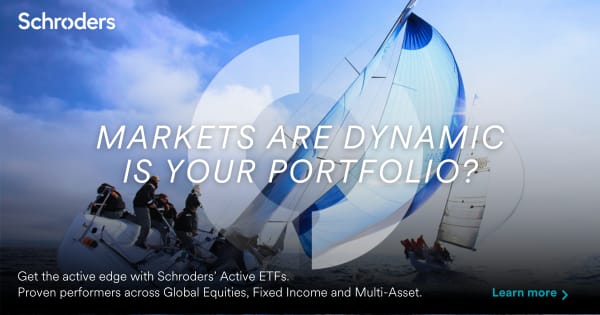- Equity Mates
- Posts
- 📈 Netflix takes on the Australian government | TikTok's valuation soars
📈 Netflix takes on the Australian government | TikTok's valuation soars
Here's what you need to know today

America’s streaming giants have been lobbying the US government to help their fight in Canberra
Here’s what you need to know today
The US government has raised concerns with Australia over plans to extend local content quota rules to streaming services. This comes after extensive lobbying by America’s streaming giants. Australia’s rule change would require streaming giants including Australia’s Stan and America’s Netflix, Amazon Prime, and Disney+ to invest up to 7.5% of their Australian revenue or 10% of their Australian expenditure in local productions. The US believes this rule could breach the Australia-US free trade agreement. (Capital Brief)
While negotiations continue over a sale of TikTok’s American operations, the company just keeps growing. Shares in ByteDance, the owner of TikTok, just traded at a US$480 billion valuation. This makes it the second most valuable private company globally, between OpenAI ($500bn) and SpaceX ($400bn). (Bloomberg)
US President Trump has given Ukraine until Thursday 27 November to accept a 28-point Ukraine-Russia peace plan proposed by the US. Under the plan, Ukraine would have to cede much of its disputed territory to Russia, rule out joining NATO and dramatically reduce the size of its armed forces. Ukrainian President Zelensky told reporters, “Now, Ukraine can face a very difficult choice - either losing dignity or risk losing a major partner”. (NY Times)
Australia’s federal opposition leader Sussan Ley called for defence spending to rise to 3% of GDP. This caused tensions within the Liberal Party with suggestions Ley told the media before telling shadow defence minister Angus Taylor. Taylor is seen as a potential challenger to Ley’s leadership. (Capital Brief)
Australian miners had a tough end to last week. The fall was led by some of the hotter sectors: critical mineral producers Iluka Resources (down 12%) and IperionX (down 10%), lithium miners Liontown (down 8%) and Pilbara Minerals (down 7%) and uranium producers Deep Yellow (down 9%) and Paladin Energy (down 8%). (SMH)
Australian casino operator Star Entertainment saw shares rise 22% on Friday after regulators approved a $300 million rescue package led by American casino giant Bally’s Corporation. (ABC News)
Eli Lilly became the first pharmaceutical company to reach a US$1 trillion valuation. The company has risen 35% this year as it becomes the leader in GLP-1 weight loss drugs. It has almost 60% market share in the US for these drugs. (Reuters)
US grocery giant Walmart reported a bumper set of results. Revenue was up 5.8% to US$179.5 billion for the quarter, as US same store sales rose 4.5% and ecommerce sales rose 27%. Profit was up 34% to US$6.1 billion. (Bloomberg)
Walmart also announced it would transfer its stock listing from the New York Stock Exchange to the Nasdaq. The $800 billion retailer’s move will be the largest delisting in NYSE history. (Reuters)
Trump Media shares are in freefall. The company behind Truth Social is down 70% so far in 2025, wiping $5 billion off the Trump family’s net worth. (Barron’s)
Bitcoin’s price dropped down below US$81,000. This was almost 36% down from its all-time high set just last month. However, it then rebounded to sit above $86,000 by the end of the weekend. As always, cryptocurrency is an incredibly volatile ride. (Forbes)
What the…?
Senator Lidia Thorpe is calling for a nationwide ban on per- and polyfluoroalkyl substances, better known as PFAS or “forever chemicals”, following a 12-month Senate inquiry.
PFAS are used in nonstick cookware, stain-resistant fabrics, cosmetics, food packaging, and other commercial and industrial applications. They spread through the air and water systems into rivers, lakes, and soil, eventually finding their way into drinking water. They are effectively indestructible by natural processes, hence the term “forever chemicals”. Medical research is becoming increasingly clear that PFAS exposure can lead to birth defects, developmental impairments, decreased fertility, and more. Senator Thorpe has called them “the asbestos of the 21st century”.
The Senate inquiry found that Australia’s health advice minimizes the risk that the synthetic chemicals have on affected communities. The report recommends 47 measures, including a map of PFAS hotspots, subsidized blood testing, and a review of current health guidance. (9 News)
Investing is a lifelong journey
Here’s what you can learn today
The impact of brokerage on long-term returns
This is an extract from the Equity Mates Investing episode titled ‘Bitcoin is down bad, Ren’s portfolio shake-up & Pimp my Portfolio with Matt Ingram’ (Apple | Spotify | YouTube)
Simon: So Ren, you’re thinking about changing your core portfolio with some of your investments and the brokerage platform you use. Why’s that?
Ren: Two reasons, the first reason is I want to add some leverage. So as I've researched more and spoken to more people and studied more, I am convinced that a moderate level of gearing is a good decision for me. Obviously everyone needs to make their own decision. Key one is can you ride out that amplified volatility? But I'm confident that I can. And the second one is I want to lower my brokerage even further. So right now I use superhero for my investment platform. They've got $2 brokerage, which was the lowest, but Betashares direct offer zero brokerage when it comes to auto invest or recurring investments, it's only on their ETFs. But for me, I did the maths, I put it in a compound interest calculator just to see. So I invest in four ETFs every fortnight.
Simon: So this is for the brokerage cost?
Ren: Yeah, so that's $8 brokerage a fortnight. So let's see what you think it turns out to be. So $8 a fortnight for 40 years and I did 13% a year. So 13%, some say it's too high, but 13% is the average return over 124 years of the Australian stock market with dividends reinvested. So what do you reckon that net's out to be after 40 years?
Simon: $8 a fortnight? Thats $208 a year isn’t it?
Ren: Yep, $208 a year but let’s call it $200 a year for a simple example. As soon as you start compounding stuff for that time, it gets pretty wild. So $200 a year, for 40 years, at 13% compounded. Meaning if without compounding I would be paying $8,320 in brokerage. Simon can you take a guess at what the final figure would be when compounded?
Simon: $67,000?
Ren: Miles away… it’s $211,913. That's massive, and shows the power of compounding. That is why our brains think linearly. We don't think exponentially, but that is why small differences in fees, small differences in brokerage can really add up over time. So that's what I want to do. Take my brokerage to zero.
Want to watch the full episode? Check it out on the Equity Mates YouTube channel
A message from Schroders

Get the active edge. The Schroders Active ETF range spans Global Equities, Fixed Income and Multi-Asset. Access 220 years of compounded investment expertise.
ASX: ALPH Investing in high-quality companies and growth opportunities via a thoughtfully constructed global equities portfolio designed to deliver consistent outperformance.
Cboe: HIGH Pursuing dependable income by investing in quality, high-yielding Australian credit opportunities, within a long-standing and diversified approach.
ASX: CORE A diversified global equity enhanced index fund with a long-term track record, combining fundamental stock selection with quantitative tools to deliver consistent outperformance at just 25bps.
Cboe: PAYS Focused on delivering capital preservation and stable monthly returns across multiple assets classes.
ASX: GROW Designed to outpace inflation over the medium term, providing real returns via an actively managed, diversified global portfolio of assets.
Schroder Investment Management Australia Limited AFSL 226473 ABN 22 000 473 274. Past performance is not a reliable indicator of future performance.
